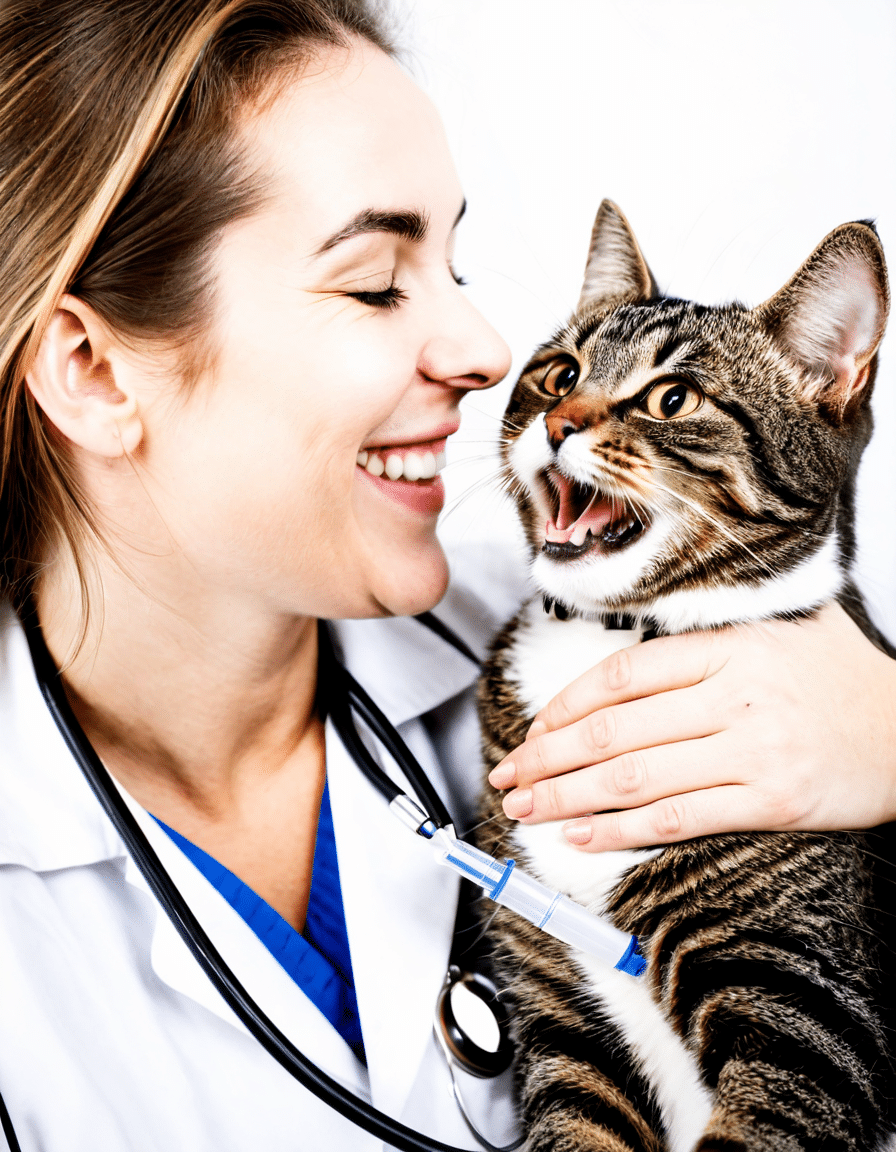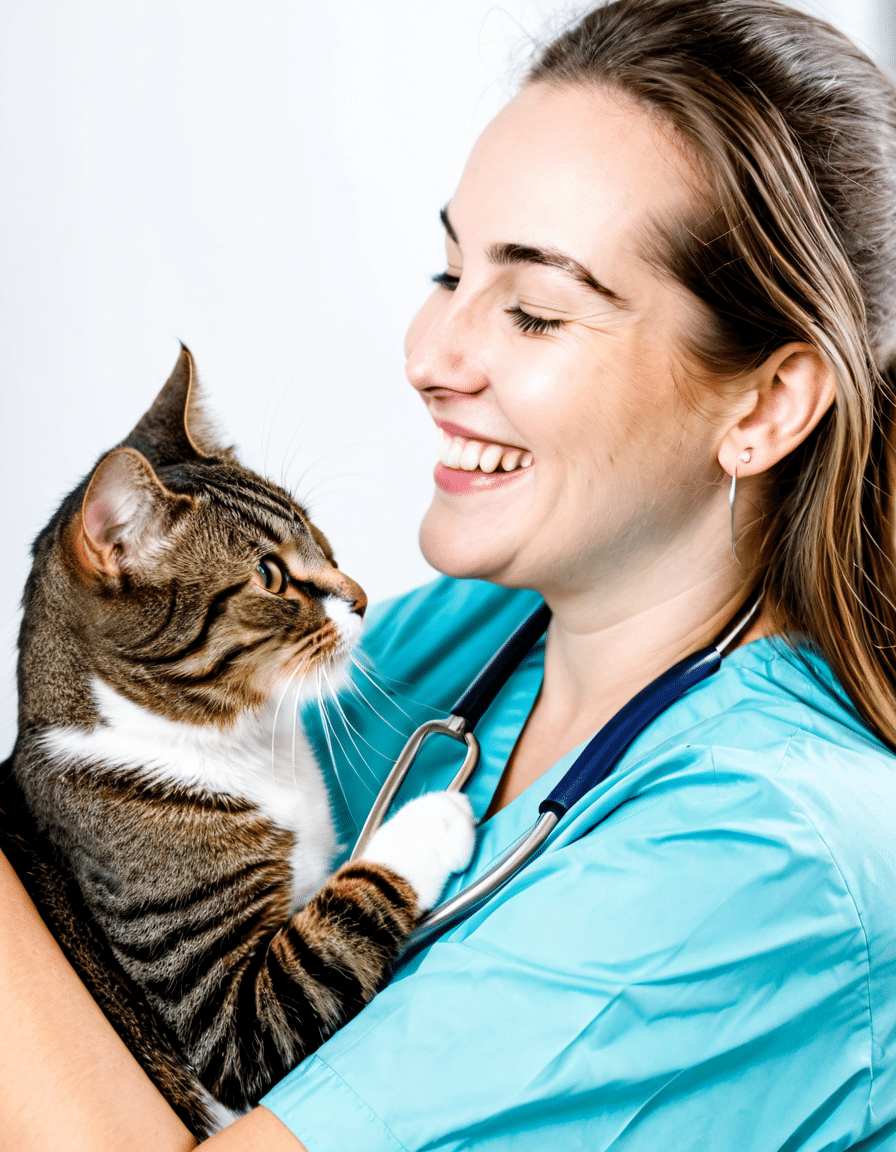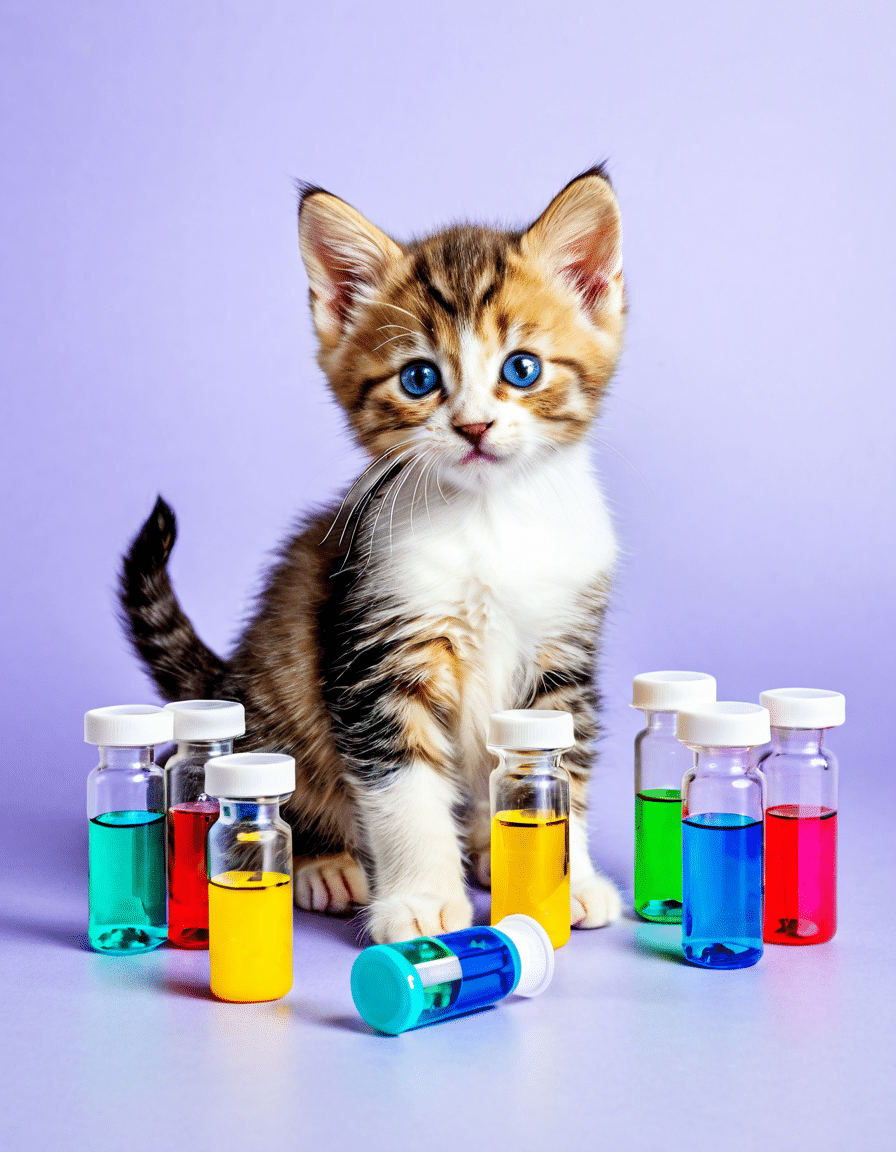When you’re a cat parent, thinking about vaccinations can be overwhelming. But one shot you really shouldn’t overlook is the FVRCp vaccine. You might be asking, What is the FVRCp vaccine? Well, it’s a core vaccination that protects your kitty against some serious viral diseases: Feline Viral Rhinotracheitis (FVR), Calicivirus (FCV), and Panleukopenia (FPL). These illnesses are not just bad news; they can be dangerous, especially for young and unvaccinated cats. With the FVRCp vaccine, you’re giving your furry friend a fighting chance against these nasty bugs.

## What Is FVRCPC Vaccine and Why It Matters for Your Cat
The FVRCp vaccine plays a crucial role in your cat’s health. Let’s break it down further. This vaccine is a must-have for keeping your feline safe from three significant viral diseases:
By getting your cat vaccinated, you’re not just looking out for them; you’re also promoting a healthier kitty community. A high vaccination rate among cats helps keep disease outbreaks at bay. Kittens typically receive their first shots between 6 and 8 weeks old, and they’ll need booster shots throughout their lives.
Is It Safe? Common Concerns
Now, let’s chat about safety. Many cat owners worry about potential vaccine side effects, including concerns like, Does chronic kidney disease cause low platelets? Generally, the FVRCp vaccine is well-tolerated, even in cats with pre-existing conditions. But if your cat has health issues, it’s always smart to discuss vaccination with your vet to weigh the pros and cons.
Some cat owners have voiced fears about vaccines causing long-term health problems. For instance, there’s a misconception that vaccines might be linked to elevated liver enzymes in dogs. However, research consistently indicates that the benefits of vaccinations far outweigh potential side effects.

How Important is Vaccination?
Vaccination isn’t just about protecting your cat; it’s vital for maintaining herd immunity. A cat that’s vaccinated contributes to the overall health of other cats. With higher vaccination numbers, the chances of these diseases making a comeback drop significantly.
Kittens should start their vaccination journey early, but adult cats need to stay up to date too. Many vets suggest revaccinating cats every one to three years, but the schedule can vary based on your locale and your cat’s lifestyle.
The Importance of Routine Vet Visits in Companion Animal Health
While vaccinations are critical, regular vet visits go hand in hand with keeping your feline friend healthy. A vet appointment can help spot changes in your cat’s health that you might not notice at home. For instance, if your cat shows signs of distress, it might be related to serious issues like fluid on the lungs in elderly kitties.
As a pet owner in today’s world, being proactive is key. Think of your cat’s health like home maintenance: just like you’d keep an eye out for leaks or cracks in a 5000 square foot house, staying informed about your cat’s health is essential for a long life.
Debunking Common Myths: What You Need to Know
As with any topic in pet care, misinformation often pops up. Here are a couple of common myths that deserve clarification:
Some cat owners believe that short-haired breeds have less skin irritation. While it’s true that long-haired cats may need more grooming, dandruff can signal underlying health issues. Regular vet check-ups can help get to the bottom of these kinds of symptoms.
People sometimes think that vaccines, including FVRCp, can lead to chronic health conditions. Yet, multiple studies show that the advantages of vaccinating outweigh potential risks.
Understanding the Broader Picture: Comprehensive Cat Care
Looking after your cat involves more than just vaccinations. Holistic care means addressing many factors, like what your cat eats and how much exercise they get. Want to keep your pet healthy? Make sure you’re aware of signs that something might be off, like changes in appetite or energy levels.
You wouldn’t ignore your own health, right? The same should go for your feline companion. Keeping up with conversation topics like High-fiber Foods For Dogs might make you more informed when choosing the best diet for your pets.
FAQs: Addressing Common Concerns
Let’s tackle a couple of frequently asked questions:
The answer varies based on your cat’s lifestyle and exposure risks. Best to check in with your vet for advice tailored to your furry friend.
Nope! Frontline works by targeting skin and fur. It effectively keeps pests at bay without entering your pet’s bloodstream.
The Future of Cat Vaccination and Health
Veterinary medicine is advancing all the time. New technologies and discoveries are improving vaccine efficacy and safety. The FVRCp vaccine stands as a prime example of how far we’ve come in cat healthcare.
Ongoing research holds promise for future vaccines and therapies, making it easier to keep our cats healthy. Understanding vaccination like this not only helps you as a pet owner but also enhances the wellness of the entire feline population.
In the grand scheme of things, asking What is the FVRCp vaccine? and acting on that knowledge is a vital step in responsible cat ownership. Staying informed about vaccination schedules and your cat’s overall health ensures they lead a long, happy life. Treat your feline friend with the love and care they deserve by keeping their health a top priority.
what is fvrcp vaccine: Fun Facts and Trivia
The FVRCP vaccine, short for Feline Viral Rhinotracheitis, Calicivirus, and Panleukopenia, is a crucial vaccine that protects your cat from serious viral infections. But did you know that vaccines for animals have quite the history? For instance, the first vaccine developed for animals was used back in 1885 for rabies. This long-standing practice of vaccinating pets has led to healthier lives and longer lifespans. It’s akin to how canine ice cream has become a delightful treat for our furry friends, showcasing how we continually discover ways to improve pet care.
The Lifesaver for Your Feline Friend
FVRCP is not just an acronym—it stands as a protector of your cat’s health. The combination of the three components targets common feline viruses that can cause severe illness. Feline viral rhinotracheitis primarily affects the respiratory system, while calicivirus can lead to oral ulcers and respiratory issues. Panleukopenia attacks a cat’s immune system, leading to life-threatening conditions. Interestingly, just like knowing why your dog sleeps all day can alleviate concerns about their health, understanding the importance of the FVRCP vaccine can set your mind at ease.
Fun from the Feline World
Did you know that cats have been beloved pets for thousands of years? Ancient Egyptians revered them and even mummified their feline companions! This dedication to our furry pals is reflected in how pet care has evolved, with vaccines being a game-changer. Just imagine the delight of Miss America 2024, Madison Marsh, as she cares for her own pets while promoting wellness in her platform. Similarly, keeping up-to-date with vaccines, like FVRCP, is an essential part of being a responsible pet owner, much like understanding the Types Of Clownfish for aquarists.
In conclusion, the FVRCP vaccine is more than just a shot; it’s a preventative measure that keeps your cat happy and healthy. By being proactive, you are setting your feline friend on the path to a long and fulfilling life. Just like the fantastic array of fun facts surrounding pets, staying informed about vaccinations helps you become the best pet parent possible!



